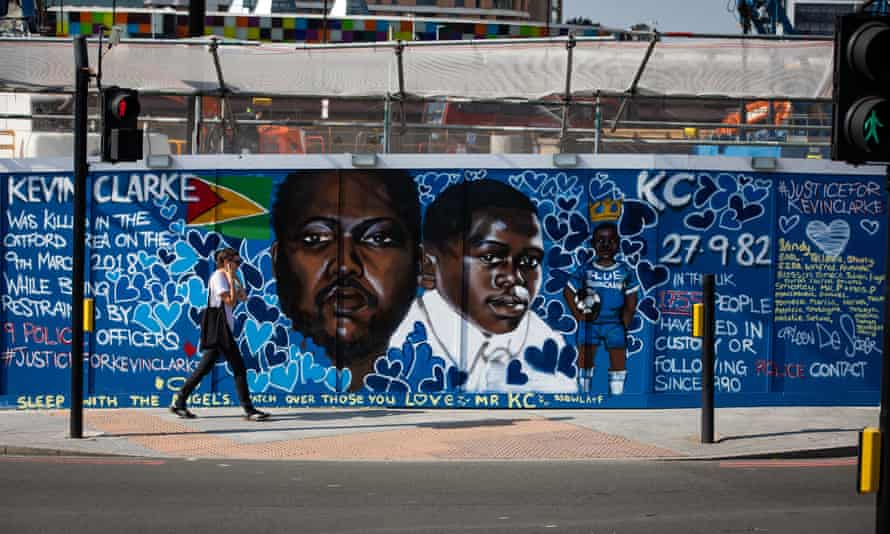
ADEN, – Waddah al-Adeni was born and raised in Aden and knows the coastal city’s streets like the back of his hand. But as a member of Yemen’s Black minority, he has little hope of ever being able to live beyond its slums.
“You’re born there and you never leave,” said Adeni, one of Yemen’s roughly 3 million “muhamasheen”, who rights advocates say occupy the lowest rung of a de facto caste system that keeps Black Yemenis on the margins.
“They just look at my face and that’s it,” said the 39-year-old, whose slum is plagued by rampant power cuts, a lack of clean water and an absence of formal rental agreements.
The origins of the muhamasheen, an Arabic word meaning marginalised, are disputed. Some accounts trace them to Abyssinian soldiers who occupied Yemen hundreds of years ago, others to Yemen’s Red Sea plain.
“I’d love to have nice clothes one day. Shave my beard. Have a car. Smell nice, go into a hotel. To just feel happy and be a part of society,” said Adeni.
While Yemeni law does not discriminate on the basis of skin colour, society is partly stratified by tribe, meaning those with dark skin or unrecognised lineage have faced discrimination for centuries, campaigners say.
That leads to the exclusion of the country’s Black population – which also includes about 35,000 African migrants – from schools, formal jobs and decent housing, they say.
Many even struggle to register their newborns, with only 9% holding birth certificates, according to a survey by the U.N. Children’s Fund (UNICEF). Access to other government documents, as well as jobs and services, is often hampered as a result.
“It’s a vicious cycle,” said Salah Dabwan, a lawyer and longtime muhamasheen activist.
Following widespread popular protests in 2011, the body tasked with shaping Yemen’s new constitution proposed a 10% quota for muhamasheen in public sector jobs, and access to leadership positions.
But the draft constitution ultimately left out the quota, and the outbreak of war in 2015 and Yemen’s subsequent economic decline left the muhamasheen more vulnerable than ever.
‘WE BEG’
Raheel Sami was born a year before Adeni, thousands of miles away in Haramaya, Ethiopia – but their fates have overlapped since she arrived in Yemen 15 years ago. Like Adeni, she now lives on the edge of Aden in precarious conditions.
Thousands of Ethiopians and Somalis make the dangerous journey every year to flee persecution and violence or seek work in Saudi Arabia and other Gulf states, but often get stuck in Yemen, where the war has worsened their situation, according to Human Rights Watch (HRW).
“We beg from restaurants, and some Yemenis sometimes bring us food,” Sami said in the makeshift coastal camp where she lives in a tent made of tattered tarpaulin and garbage bags.
“It’s because of the colour of our skin.”
Sami has spent most of her years in Yemen as a U.N.-registered refugee in the northern city of Sanaa, which was taken over by the Houthi armed movement in 2015.
A year ago, she joined protests by fellow migrants and refugees after scores of migrants were killed in a fire in a detention camp run by the Houthis in Sanaa, where inhabitants reported being subject to racial slurs, HRW said.
Many of the protesters were rounded up by Houthi security forces, put onto trucks and deported to the country’s south, which is held by the internationally recognised government.
Sami was separated from her 13-year-old daughter and twin adolescent sons during the expulsion. They remain stranded alone in Sanaa.
Fellow camp residents were pessimistic about their prospects, with many blaming the same discrimination experienced by the muhamasheen.
“It’s absolutely no use being Black here. We’re only allowed to work in garbage, or cleaning,” said one Ethiopian man who had also been kicked out of Sanaa, asking not to give his name.
‘MODERN DAY SLAVERY’
The few Ethiopian migrants in Aden with jobs said they earned at most $50 a month as cleaners and trash collectors, while their children spend the day begging.
Parents desperate to keep food on the table are more likely to pull their children out of school to work – closing the door on education as a pathway to a better life.
According to UNICEF, only half of school-age muhamasheen are enrolled in classes, and just one in five over-15s can read or write.
“This isn’t modern-day slavery – this is just slavery, period,” said Dabwan.
Adeni himself dropped out of school when he was eight to begin working but, like other muhamasheen, was only hired for informal, low-paid work – and had no recourse when his employer withheld his pay or fired him suddenly.
He described being repeatedly accosted in the streets by security forces, or kicked out of public parks.
“Every time you feel like you’re okay and starting to be integrated, that you’re part of this city, something reminds you that you’re not.”



![The former Arsenal and Barcelona striker Henry, who has 15 million followers across Facebook, Instagram and Twitter [File: AFP]](https://www.aljazeera.com/wp-content/uploads/2010/03/201036151831482734_5.jpeg?resize=270%2C180)

 SISTERS and ASSOCIATES of NOTRE DAME de NAMUR
SISTERS and ASSOCIATES of NOTRE DAME de NAMUR (Article previously posted in the Archdiocese of Baltimore’s Catholic Review diocesan newspaper)
(Article previously posted in the Archdiocese of Baltimore’s Catholic Review diocesan newspaper)

